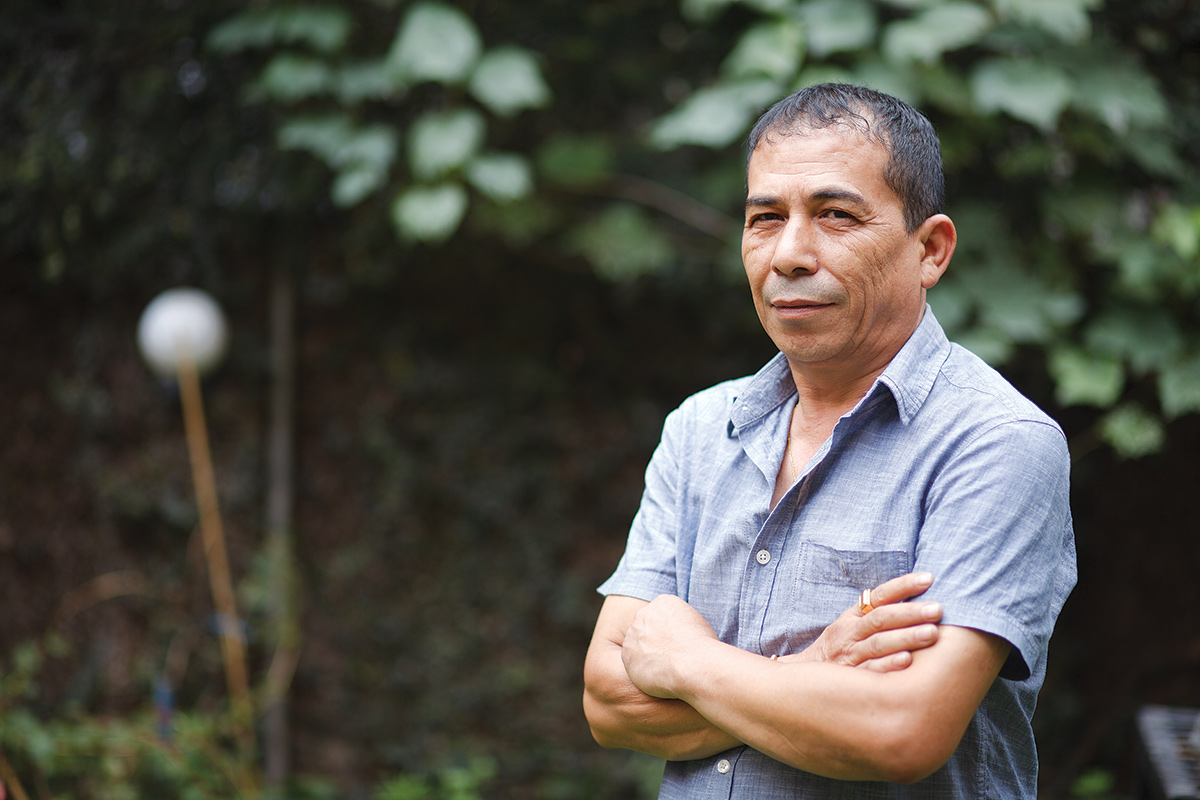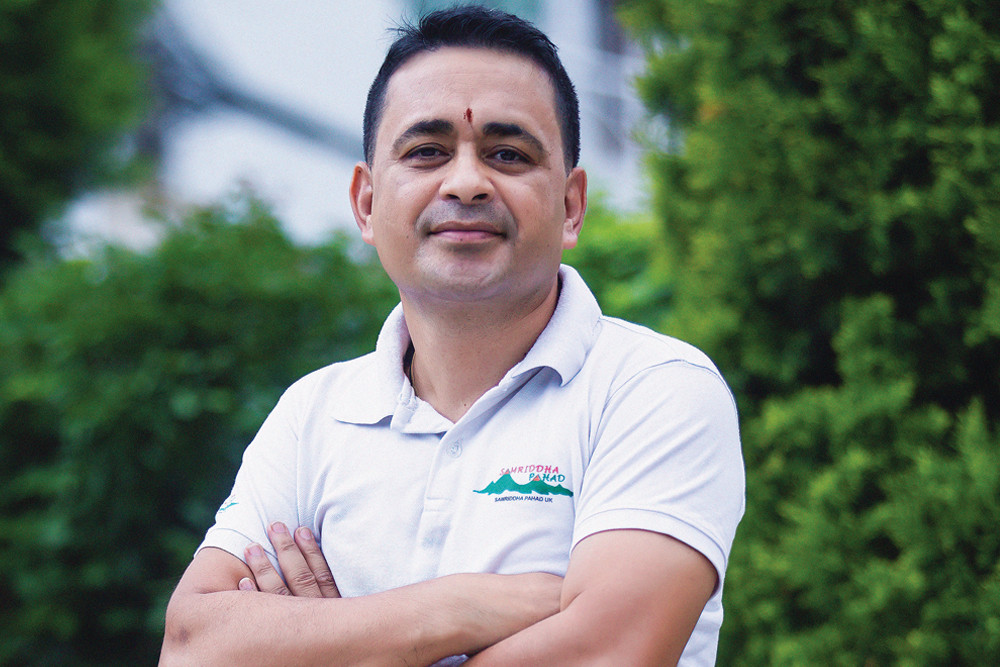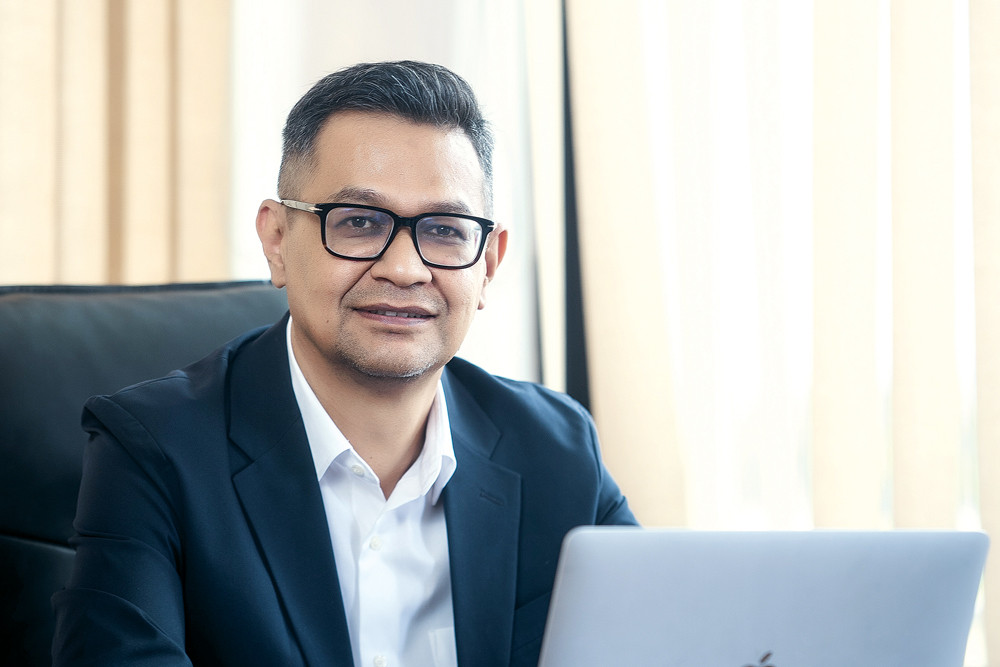
Prakash Narsingh Rana
President, Thamel Tourism Development Council
Elected as President of Thamel Tourism Development Council (TTDC) in June 2019, Prakash Narsingh Rana’s main goal in his tenure is to develop Thamel in areas of wastage management, drainage management, no vehicle zone, tourist assistance and to give continuity to the current works undertaken by TTDC acting as a liaison between businesses and landlords.
Rana started his journey at TTDC as general member a decade back. He entered the tourism arena straight after high school working at Kathmandu Guest House. “Tourism in Thamel was just developing then,” recalls Rana. He travelled to Singapore initially for a holiday but ended up working there. From Singapore, he travelled to several countries including Australia, Germany and UK to learn about the different food cultures. He returned to Nepal and opened a restaurant called Zaika serving Nepali Cuisine in Thamel 20 years ago.
In this edition of B360, Dibesh Dangol interviewed Rana to get his insights on leadership and the next generation of leaders. Excerpts:
What is your definition of leadership?
It is how a leader motivates a group of people to operate towards achieving a common goal of a company or organisation. Though a leader is the one who leads from upfront, his team plays a vital role in making an organisation successful. A good leader must be able to inspire people and communicate his values correctly to employees.
What values are most important in a leader?
A leader needs to solve problems whether it is inside or outside an organisation relentlessly. As the president of TTDC, my work which also reflects my values, is to solve problems faced by tourists visiting Thamel, maintain good coordination and relationship between businesses and landlords, and be aware of the development activities needed inside Thamel area. Problem solving is one value a leader must have, and another is integrity. I have always been honest, stayed true to my roots in Thamel and therefore the people of Thamel have trust in me.
Who is your leadership icon?
I consider Tejendra Nath Shrestha, owner of The Third Eye and Ying-Yang restaurants, as my leadership icon. He is one of Nepal’s renowned restaurateurs and has always been an energetic figure in developing and promoting tourism in Thamel. When I worked under his leadership, he eased our work, and due to him TTDC and Thamel tourism have been able to reach its current position.
What are the keys to developing the next generation of leaders?
To develop the next generation of leaders, first of all, the government needs to make correct plans and policies; create employment opportunities, a good education system and positive entrepreneurial scene. This will encourage today’s generation to stay in Nepal and not go abroad for work or studies. If Nepali youngsters are going abroad and settling over there, then there won’t be any next generation leaders at all.
Even though I went abroad to work and through which I learnt various skills, I came back to Nepal and applied what I had learnt. There are many such skilled Nepalis working in foreign countries who want to come back to Nepal and apply what they have learnt. But they hesitate to return because of the political and financial backlashes. Such problems need to be tackled imminently.
People who aspire to become leaders should learn leadership values of commitment, consistency, motivation and continuous learning.
What is the most difficult part of being a leader?
Being a leader itself is the most difficult part because when your team members disagree with you, it’s your responsibility as a leader to stay focused on the end goal and bring together everyone on the vision and values of the organisation. Thankfully, I have great team members both at TTDC and Zaika.


.jpg)


.jpg)